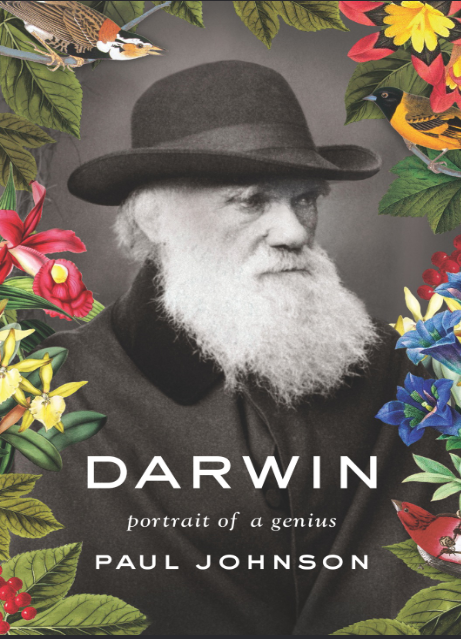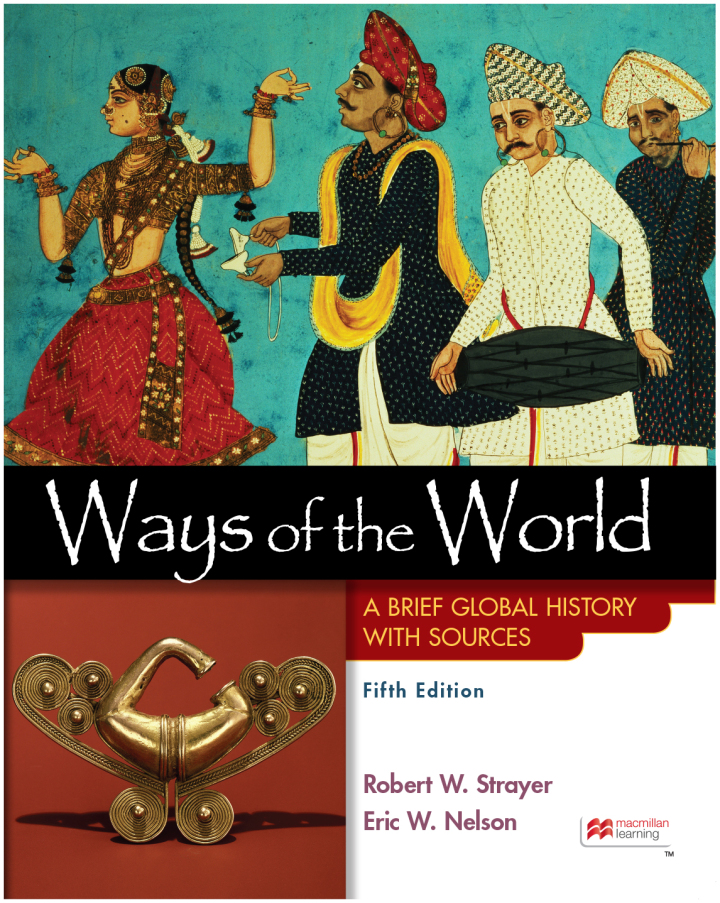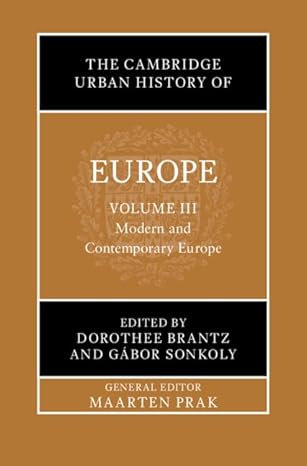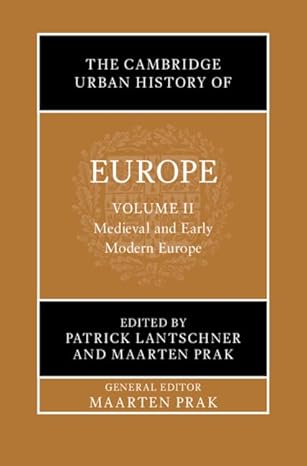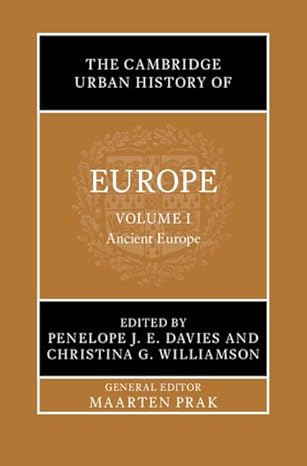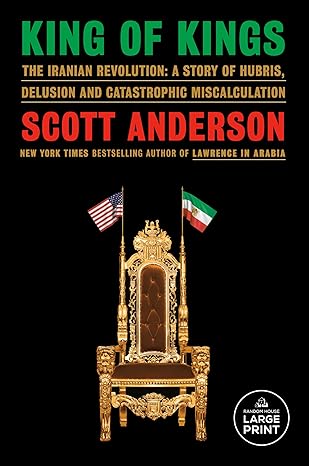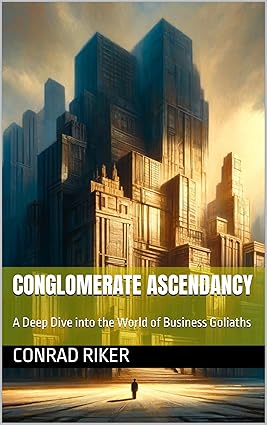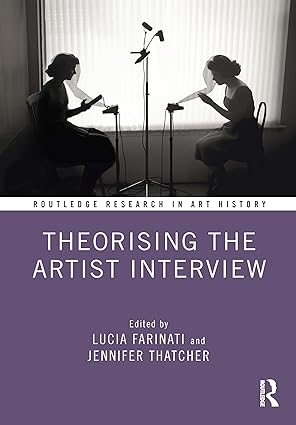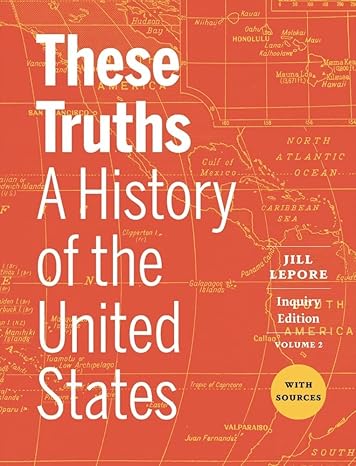As the progeny of three such remarkable men, Eramus and Robert Darwin and Josiah Wedgwood—the imaginative genius, the intuitive genius, and the empirical genius— Charles Darwin had access to a gene pool of the highest possible quality. Some points are worth noting. First, all three forebears were skillful at handling money and amassed it with the seemingly effortless ease that financial wizards show. Hence Charles Darwin was able to become a gentleman-scientist without the smallest difficulty and remain one all his life. He never had to worry about money. He did worry about money—he worried about everything— but he never had to compromise, limit, or adjust his scientific activities for financial reasons. Thus he was virtually unique among famous scientists. Moreover, he inherited the talent for managing money, unlike his codiscoverer and rival, Alfred Russel Wallace, who came from a family of financial bunglers and bankrupts and got into a mess in his turn, from which Darwin rescued him. Not that the Darwins and Wedgwoods were all wizards with coin: Both families had their share of personal boom-and- busters (Charles’s solicitor uncle was one). But Charles Darwin, though he never earned a penny in salary and made scarcely £10,000 from his books in his lifetime, grew steadily richer, and in his last years had an investment income alone of over £8,000 a year, leaving at his death a fortune of “at least” £280,000. (By comparison, Dickens, for all his bestsellers and spectacular readings, left just under £90,000. Palmerston, over fifty years in well-paid office, with successful investments in land, slateworks, and a port, left under £100,000.) The Darwin and Wedgwood families were thus favored by wealth makers and preservers, as well as spendthrifts. They were highly philoprogenitive and clustered in great family groups, living nearby and thus often intermarrying. Charles Darwin conformed to genotype in both respects, marrying his first cousin and begetting ten children, seven of whom survived to maturity. There were a number of tragic cases among the Darwin-Wedgwood cousinhoods. Erasmus Darwin’s first wife, Charles Darwin’s paternal grandmother, took to drinking gin and died an alcoholic, by no means unusual among wealthy English ladies in the second half of the eighteenth century, as Thomas Rowlandson suggests with his superb watercolor, The Morning Dram. She was not the only drunk in the clan, and there were cases of drug addiction, too (opium), also common enough, especially in the years 1800–1850. And there were several suicides. In general, however, the family confederation did well and populated the Midlands and the south of England with well-to-do families of professionals and businessmen, who kept in touch and made their own networks of friends. Charles Darwin was thus born into a teeming and valuable acquaintance, which he assiduously maintained and polished all his life, in many different ways but especially by a vast correspondence. Its characteristics were high intelligence, an interest in technical and scientific matters, religious unorthodoxy or disbelief, industry, and persistence. Fellows of the Royal Society and fellows of the Geographical, Geological, Botanical, and other learned societies were common. Acquisitiveness, not just in money and property, but in specimens of every kind, from butterflies to fossils, was almost universal, and the comfortable rectories and purpose-built villas in which the families lived were crammed with books and cases of stuffed birds and animals, rocks and potsherds, their spacious gardens often containing ranks of specimen trees and exotic shrubs. Gardens, servants of all kinds, and children of all ages abounded. Darwin conformed to this pattern in every respect, during all his mortal existence. There was one shadow, however. Among Erasmus Darwin’s friends was Joseph Priestley, minister and theologian variously described as an Arminian, Socinian, and an atheist but chiefly remarkable for his work as an experimental chemist, as the discoverer of oxygen. From time to time, writings of his were publicly burned, but he was generally left alone until the coming of the French Revolution raised political passions. He foolishly described his political Letters, published in 1790, as “grains of Gunpowder” for which his opponents were “providing the match.” Hence he was called Gunpowder Priestley. It was an age of “constitutional societies,” formed to support the French Revolution and press for similar reforms in England, and also of Church-and-King organizations to oppose them. On July 14, 1791, Priestley was invited to address a meeting in Birmingham to commemorate the anniversary of the Fall of the Bastille, but having been warned of danger, he declined to attend. Even so, a Church-and-King mob surrounded his house at Fairhill, near Birmingham, and burned it, destroying nearly all his books, scientific apparatus, and papers. Priestley escaped with his life, but order was not restored for three days. Four rioters were hanged, Priestley received some compensation, and friends enabled him to resettle in London. But he never felt safe again, and in 1794 he emigrated to New York. The victimization and enforced exile of Priestley became a defining event in the Darwin family, and among all their dissenting and unorthodox friends. Charles Darwin was vividly conscious of it, more so indeed than his grandfather and father. What terrified him was the religious dimension of the event. It left him with an abiding fear of the possible consequences of offending the tender consciences of Church of England clergymen, who might then be inspired to stir up a mob to burn and kill. The cry of the mob, who were said to have called out “No philosophers—Church and King for ever!” and “Burn the atheists!” always echoed in his subconscious and preyed on his nerves. It gave to his life and work a dimension of worry that had enormous consequences. Charles Darwin was born on February 12, 1809, at The Mount, Shrewsbury, the substantial house his father had built in the early Regency style. It was a vintage year for great men: Also born were Tennyson and Gladstone, and Lincoln arrived the same day as Darwin. Napoléon still strode over Europe like a colossus, and Madison was about to be inaugurated as the fourth president of the United States. But the item from 1809 that would most have interested the adult Darwin was the news that a young naturalist and artist, John James Audubon, had successfully banded pewees near Pittsburgh, proving that migratory birds return to nest to the place where they hatched. This was the kind of experiment dear to Darwin’s heart, and he would have endorsed Audubon’s remarks when he first saw a ringed female pewee lay an egg: “It filled my mind with the same wonder that I feel when I search the heavens for the meaning of all I see.” Throughout his long life, Darwin was an extremely lucky man. Of all the great scientists in history, he was the most favored by fortune. His genetic inheritance, as we have seen, was magnificent. He had a happy childhood, despite the catastrophe of his mother’s death. He loved and admired his father. He was happy in his father’s house, garden, and fields. The family was harmonious and the servants plentiful, well paid, and friendly. Darwin was born a gentleman in an age when the term had a specific meaning and legal status. His uncle, Josiah Wedgwood II, had bought a prize thousand-acre estate at Maer in Staffordshire, and there Darwin often stayed in childhood and youth, and learned to ride and shoot. Under the game give a proof of my zeal,” he one day “saw two rare beetles & seized one in each hand; then I saw a third & new kind, which I could not bear to lose, so that I popped the one I held in my right hand into my mouth. Alas it ejected some intensely acrid fluid which burnt my tongue so that I was forced to spit the beetle out, which was lost.” It was Darwin’s strategy, in writing about himself after he became famous, to emphasize the positive side of his intellectual development as springing from innate qualities and to discount his formal education. He had a year at a primary school before going to Shrewsbury for five years. This ancient school, which in Tudor and early Stuart times had been the best in England, was then run by Dr. Samuel Butler. His grandson, another Samuel, was later to hound Darwin unmercifully in his years of fame, and perhaps for this reason, Darwin claimed he learned nothing of value at his grandfather’s school. This was not true. He acquired a better command of written English than is the fate of most scientists, together with habits of industry and intellectual tidiness. He also developed a strong taste for literature, especially poetry and, not least, Shakespeare, and the recent poems of Scott and Byron. He made many friends among the boys, and he displayed for the first time a gift that he retained all his life, for male friendship. He said, “Some of these boys were rather clever,” but, he added with a hint of satisfaction, “not one of them became in the least distinguished.
چکیده فارسی
چارلز داروین به عنوان فرزندان سه مرد برجسته، اراموس و رابرت داروین و جوزیا ودگوود - نابغه تخیلی، نابغه شهودی و نابغه تجربی - به یک مخزن ژنی با بالاترین کیفیت ممکن دسترسی داشت. برخی از نکات قابل توجه است. اول، هر سه پیشین در مدیریت پول مهارت داشتند و آن را با سهولت ظاهراً بی دردسری که جادوگران مالی نشان می دهند، جمع آوری کردند. از این رو چارلز داروین توانست بدون کوچکترین مشکلی به یک دانشمند-نجیب تبدیل شود و در تمام عمر خود یک دانشمند باقی بماند. او هرگز نگران پول نبود. او نگران پول بود - او نگران همه چیز بود - اما هرگز مجبور نشد فعالیت های علمی خود را به دلایل مالی مصالحه کند، محدود یا تعدیل کند. بنابراین او عملاً در میان دانشمندان مشهور منحصر به فرد بود. علاوه بر این، او برخلاف کشف کننده و رقیب خود، آلفرد راسل والاس، استعداد مدیریت پول را به ارث برد، که از خانواده ای ورشکسته و ورشکسته بود و به نوبه خود دچار آشفتگی شد که داروین او را از آن نجات داد. نه اینکه داروین ها و ودگوودها همه جادوگران با سکه بودند: هر دو خانواده سهم خود را از رونق و سقوط شخصی داشتند (عموی وکیل چارلز یکی بود). اما چارلز داروین، اگرچه هرگز یک پنی حقوق دریافت نکرد و در طول زندگیاش به ندرت 10000 پوند از کتابهایش به دست آورد، بهطور پیوسته ثروتمندتر شد و در آخرین سالهای زندگیاش تنها درآمد سرمایهگذاری بیش از 8000 پوند در سال داشت و پس از مرگش، ثروت "حداقل" 280000 پوند. (در مقایسه، دیکنز، با همه پرفروشترینها و خوانشهای تماشاییاش، چیزی کمتر از 90000 پوند باقی گذاشت. پالمرستون، بیش از پنجاه سال در دفتری پردرآمد، با سرمایهگذاری موفق در زمین، سنگتراش و یک بندر، کمتر از 100،000 پوند باقی مانده است.) بنابراین خانواده داروین و ودگوود مورد توجه ثروت سازان و حافظان ثروت و همچنین افراد ولخرجی قرار گرفتند. آنها به شدت فیلوپروژن بودند و در گروه های خانوادگی بزرگ قرار داشتند و در نزدیکی زندگی می کردند و بنابراین اغلب با هم ازدواج می کردند. چارلز داروین از هر دو جنبه با ژنوتیپ مطابقت داشت، با پسر عموی اول خود ازدواج کرد و ده فرزند به دنیا آورد که هفت نفر از آنها تا زمان بلوغ زنده ماندند. تعدادی از موارد غم انگیز در میان پسرعموهای داروین-وگوود وجود داشت. همسر اول اراسموس داروین، مادربزرگ پدری چارلز داروین، مشروب الکلی مصرف کرد و در میان زنان ثروتمند انگلیسی در نیمه دوم قرن هجدهم غیرعادی نبود، همانطور که توماس رولندسون با آبرنگ فوقالعادهاش، درام صبحگاهی پیشنهاد میکند. او تنها مست در طایفه نبود، و مواردی از اعتیاد به مواد مخدر نیز وجود داشت (تریاک) که به اندازه کافی رایج بود، به ویژه در سال های 1800-1850. و چندین خودکشی رخ داد. با این حال، به طور کلی، کنفدراسیون خانوادگی خوب عمل کرد و میدلندز و جنوب انگلستان را با خانوادههای مرفهی از متخصصان و تاجران پر کرد، که ارتباط خود را حفظ کردند و شبکههای دوستان خود را ایجاد کردند. بنابراین، چارلز داروین در یک آشنای پرجمعیت و ارزشمند متولد شد، که او در تمام عمر خود با سختی و تلاش حفظ و صیقل داد، به طرق مختلف، به ویژه با مکاتبات گسترده. از ویژگی های آن می توان به هوش بالا، علاقه به مسائل فنی و علمی، نامتعارف یا کفر مذهبی، صنعت و پایداری اشاره کرد. اعضای انجمن سلطنتی و اعضای انجمن های جغرافیایی، زمین شناسی، گیاه شناسی و سایر انجمن های علمی رایج بودند. اکتساب، نه فقط در پول و دارایی، بلکه در انواع نمونهها، از پروانهها تا فسیلها، تقریباً جهانی بود، و خانههای راحت و ویلاهای هدفمندی که خانوادهها در آن زندگی میکردند مملو از کتابها و جعبههایی از پرندگان و حیوانات بود. ، صخره ها و سفال ها، باغ های وسیع آنها اغلب دارای ردیف هایی از درختان نمونه و درختچه های عجیب و غریب است. باغ ها، خدمتکاران از هر نوع، و کودکان در هر سنی فراوان بود. داروین در تمام عمر فانی خود از هر نظر با این الگو مطابقت داشت. با این حال یک سایه وجود داشت. در میان دوستان اراسموس داروین، جوزف پریستلی، وزیر و الهیدانی بود که بهطور متفاوتی بهعنوان یک آرمینی، سوسینی، و ملحد توصیف میشد، اما عمدتاً بهخاطر کارش بهعنوان یک شیمیدان تجربی، بهعنوان کاشف اکسیژن، قابل توجه بود. گاه به گاه، نوشته های او علناً سوزانده می شد، اما او به طور کلی تنها ماند تا اینکه انقلاب فرانسه شور و شوق سیاسی را برانگیخت. او احمقانه نامههای سیاسی خود را که در سال 1790 منتشر شد، بهعنوان «دانههای باروت» توصیف کرد که مخالفانش «کبریت را برای آن فراهم میکردند». از این رو او را Gunpowder Priestley نامیدند. عصر «جوامع مشروطه» بود که برای حمایت از انقلاب فرانسه و فشار برای اصلاحات مشابه در انگلستان و همچنین سازمانهای کلیسا و پادشاه برای مخالفت با آنها شکل گرفت. در 14 ژوئیه 1791، پریستلی برای سخنرانی در جلسه ای در بیرمنگام برای بزرگداشت سالگرد سقوط باستیل دعوت شد، اما با هشدار در مورد خطر، از شرکت در آن خودداری کرد. با این حال، گروهی از کلیسا و پادشاه خانه او را در فیرهیل، نزدیک بیرمنگام، محاصره کردند و آن را سوزاندند و تقریباً تمام کتابها، دستگاههای علمی و مقالات او را نابود کردند. پریستلی با جان خود فرار کرد، اما نظم به مدت سه روز برقرار نشد. چهار شورشگر به دار آویخته شدند، پریستلی مقداری غرامت دریافت کرد و دوستان او را قادر ساختند تا در لندن مستقر شود. اما او دیگر هرگز احساس امنیت نکرد و در سال 1794 به نیویورک مهاجرت کرد. قربانی شدن و تبعید اجباری پریستلی به یک رویداد تعیین کننده در خانواده داروین و در میان همه دوستان مخالف و غیرمتعارف آنها تبدیل شد. چارلز داروین به وضوح از آن آگاه بود، در واقع بیشتر از پدربزرگ و پدرش. آنچه او را به وحشت انداخت، بعد مذهبی این رویداد بود. او را با ترسی دائمی از عواقب احتمالی توهین به وجدان ملایم روحانیون کلیسای انگلستان مواجه کرد، که ممکن است پس از آن الهام گرفته شود تا گروهی را برای سوزاندن و کشتن برانگیزد. فریاد اوباش، که گفته میشود فریاد میزدند: «هیچ فیلسوف، کلیسا و پادشاه برای همیشه!» و "آتئیست ها را بسوزانید!" همیشه در ناخودآگاهش طنین انداز می شد و اعصابش را طعمه می کرد. این به زندگی و کار او ابعادی از نگرانی داد که پیامدهای عظیمی داشت. چارلز داروین در 12 فوریه 1809 در The Mount، Shrewsbury، خانه قابل توجهی که پدرش به سبک Regency اولیه ساخته بود، به دنیا آمد. سالی پرنعمت برای مردان بزرگ بود: تنیسون و گلادستون نیز به دنیا آمدند و لینکلن در همان روزی که داروین به دنیا آمد. ناپلئون همچنان مانند یک غول بزرگ بر فراز اروپا قدم می زد و مدیسون در آستانه افتتاح به عنوان چهارمین رئیس جمهور ایالات متحده بود. اما موردی از سال 1809 که داروین بالغ را بیش از همه مورد توجه قرار می داد، این خبر بود که یک طبیعت شناس و هنرمند جوان، جان جیمز اودوبون، با موفقیت پیویه ها را در نزدیکی پیتسبورگ چسباند و ثابت کرد که پرندگان مهاجر به محلی که از تخم درآورده بودند، لانه می کنند. این همان آزمایشی بود که برای داروین مورد علاقه بود، و او اظهارات اودوبون را هنگامی که برای اولین بار مشاهده کرد که یک پیوی ماده حلقه دار در حال تخم گذاری بود، تأیید می کرد: «ذهن من را با همان شگفتی پر کرد که وقتی در آسمان ها به دنبال معنی آن می گردم احساس می کنم. از همه چیزهایی که می بینم.» داروین در طول عمر طولانی خود مردی بسیار خوش شانس بود. از میان تمام دانشمندان بزرگ تاریخ، او بیش از همه مورد توجه ثروت بود. ارث ژنتیکی او، همانطور که دیدیم، باشکوه بود. او با وجود فاجعه مرگ مادرش دوران کودکی شادی را سپری کرد. او پدرش را دوست داشت و او را تحسین می کرد. او در خانه، باغ و مزارع پدرش شاد بود. خانواده هماهنگ و خادمان فراوان، حقوق خوب و صمیمی بودند. داروین در عصری نجیب زاده به دنیا آمد که این واژه دارای مفهوم و جایگاه حقوقی خاصی بود. عموی او، جوزیا ودگوود دوم، ملکی به ارزش هزار جریب در مر در استافوردشایر خریده بود و داروین اغلب در کودکی و جوانی آنجا می ماند و سوارکاری و تیراندازی را یاد می گرفت. او یک روز «دو سوسک کمیاب را دید و در هر دست یکی را گرفت. سپس نوع سوم و جدیدی را دیدم که طاقت از دست دادن آن را نداشتم، به طوری که آن را که در دست راستم نگه داشتم در دهانم فرو کردم. افسوس که مقداری مایع به شدت تند بیرون زد که زبانم را سوزاند و مجبور شدم سوسک را بیرون بریزم که گم شده بود.» این استراتژی داروین بود که در نوشتن درباره خود پس از مشهور شدن، بر جنبه مثبت رشد فکری خود به عنوان نشات گرفته از ویژگی های ذاتی تأکید کند و تحصیلات رسمی خود را کاهش دهد. او قبل از رفتن به شروزبری به مدت پنج سال، یک سال در یک مدرسه ابتدایی بود. این مدرسه باستانی که در دوران تودور و اوایل استوارت بهترین مدرسه در انگلستان بود، سپس توسط دکتر ساموئل باتلر اداره می شد. نوهاش، ساموئل دیگر، بعداً در سالهای شهرت داروین را بیرحمانه شکار میکرد و شاید به همین دلیل، داروین ادعا کرد که در مدرسه پدربزرگش چیز ارزشمندی یاد نگرفته است. این درست نبود. او تسلط بهتری به زبان انگلیسی نوشتاری نسبت به سرنوشت اکثر دانشمندان، همراه با عادات صنعتی و آراستگی فکری به دست آورد. او همچنین ذوق شدیدی برای ادبیات، به ویژه شعر و به ویژه شکسپیر، و اشعار اخیر اسکات و بایرون ایجاد کرد. او در میان پسران دوستان زیادی پیدا کرد و برای اولین بار هدیه ای را که در تمام زندگی خود حفظ کرد، برای دوستی مردانه به نمایش گذاشت. او گفت: "بعضی از این پسرها نسبتاً باهوش بودند"، اما، او با رضایت خاطر اضافه کرد، "هیچ یک از آنها کمتر متمایز نشد.
ادامه ...
بستن ...
VIKING
Published by the Penguin Group
Penguin Group (USA) Inc., 375 Hudson Street, New York, New York 10014,
U.S.A.
Penguin Group (Canada), 90 Eglinton Avenue East, Suite 700, Toronto,
Ontario, Canada M4P 2Y3 (a division of Pearson Penguin Canada Inc.)
Penguin Books Ltd, 80 Strand, London WC2R 0RL, England
Penguin Ireland, 25 St. Stephen’s Green, Dublin 2, Ireland (a division of
Penguin Books Ltd)
Penguin Books Australia Ltd, 250 Camberwell Road, Camberwell, Victoria
3124, Australia (a division of Pearson Australia Group Pty Ltd)
Penguin Books India Pvt Ltd, 11 Community Centre, Panchsheel Park, New
Delhi–110 017, India
Penguin Group (NZ), 67 Apollo Drive, Rosedale, Auckland 0632, New Zealand
(a division of Pearson New Zealand Ltd)
Penguin Books (South Africa) (Pty) Ltd, 24 Sturdee Avenue, Rosebank,
Johannesburg 2196, South Africa
Penguin Books Ltd, Registered Offices: 80 Strand, London WC2R 0RL, England
First published in 2012 by Viking Penguin, a member of Penguin Group (USA)
Inc.
Copyright © Paul Johnson, 2012
All rights reserved
LIBRARY OF CONGRESS CATALOGING IN PUBLICATION DATA
Johnson, Paul.
Darwin : portrait of a genius / Paul Johnson.
p. cm.
Includes index.
ISBN 978-1-101-60115-0
1. Darwin, Charles, 1809–1882. 2. Naturalists—England—Biography. I. Title.
QH31.D2J64 2012
576.8'2092—dc23
[B]
2012003433
No part of this book may be reproduced, scanned, or distributed in any printed
or electronic form without permission. Please do not participate in or
encourage piracy of copyrighted materials in violation of the author’s rights.
Purchase only authorized editions.
ادامه ...
بستن ...
